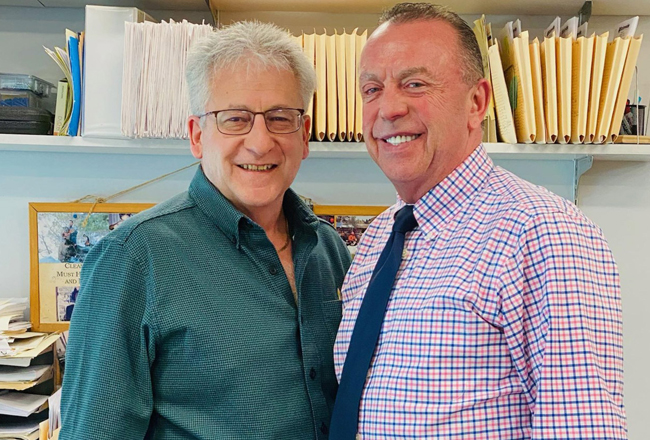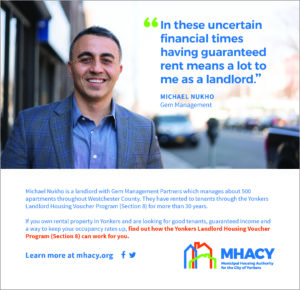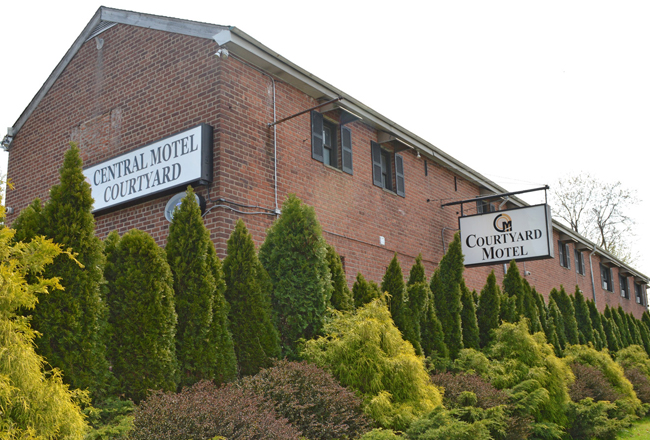When the Covid-19 pandemic took root and the state government began to determine which businesses could remain open and which needed to shut their doors, Ken Meccia discovered his White Plains-based title insurance agency Statewide Abstract Corp. fell into the same category as grocery stores and pharmacies.
“We were designated as essential, which was all new to us,” said Meccia, president of the family-run Statewide Abstract. “We came into work, masked up and washed up the whole time.”

But while Meccia and his team were ready and willing to resume normal operations, there was a wrinkle that he did not anticipate.
“The problem was that people come in for the closing and nobody wanted to come to the closing,” he said. “Our company is based on sitting down at a closing where we take documents, we look at the person to make sure this guy is selling the property and that guy”™s buying the property. We have a lot of information going back forth ”” but nobody wanted to come to a close.”
To bridge the Covid-induced challenge, Meccia was forced to come up with alternative solutions, which ranged from having clients outside of his office in socially distanced settings for reviewing and signing documents to having documents delivered through the mail.
Mitch Usavich, senior vice president at Statewide Abstract, noted that while the pandemic changed the way people lived and worked, it didn”™t change the operational protocol and compliance guidelines associated with title insurance.
“Everyone still has to do their job,” Usavich said. “There”™s nothing in this pandemic that says we”™re throwing the rules out the window.”
For Usavich, the solution for dealing with apprehensive clients uncomfortable with in-office meeting was carving out extra prep time before the closing.
“We needed to be prepared a week ahead of time in order to forward documents to the appropriate person, so that it became a centralized closing where the seller”™s attorney would complete all his stuff and send everything to me,” he said.
“The buyer”™s attorney would complete his stuff, which sometimes included executing the bank docs ahead of time, then sending everything to us. So now as a central point, so to speak, we are in possession of all of the buyer”™s stuff, the seller”™s stuff and the bank”™s stuff.
“At that point,” Usavich said, “we could now say, ”˜Okay, everyone, everything”™s done correctly. We have everything in our possession and we are ready to insure”™ ”” which, in essence, means you”™re ready now to close. And then of course, the funding would take place, people would wire funds. The biggest obstacle was getting everyone to realize that if you”™re closing tomorrow, you better have everything done already and in the hands of the correct person, because a bank is not going to just fund a million-dollar loan if all their documents were not executed correctly.”
Social distancing also created a process that turned the once-benign action of stakeholder identification into a convoluted procedure.
“If I don”™t personally know you, then you have to produce documentation,” he said. “Now, you don”™t want to get 10 feet near me. Imagine then I”™m watching the person pull their ID from their wallet, taking a picture of it with their phone 10 feet away from me and then sending it to me.”
Usavich also found himself on the phone with attorneys reading the title reports together, and sometimes he also had to remind the attorneys what they were supposed to be doing during the transaction. Still, it was not uncommon for Murphy”™s Law to show up.
“I had one attorney who used to tell us his obligation is to give us a deed signed and notarized,” Usavich said. “He calls me up two weeks before the closing and I said this is what you need to give me. Two weeks go by the before the closing the guy”™s on the phone and he says, ”˜I”™m gonna send it to you overnight.”™ Next day, lo and behold, it didn”™t get here ”” it got held up by FedEx and we close in escrow because I cannot close unless I had the original doc.”
One year into the pandemic, the rapid rollout of Covid vaccines and the easing of government edicts has brought the hope of a return to some degree of normalcy. Yet Meccia is concerned that some people are not comfortable moving beyond the pandemic-era safety nets.
“It depends on the new forms of the virus coming up,” he said. “Right now, there are people who are still afraid to come out more and there are still people that haven”™t had the vaccine.”
One thing that the pandemic has not changed for Statewide Abstract is the level of its business.
“The rates were very low, although we”™re just starting right now to see an uptick in the mortgage rates,” Meccia said. “There”™s still the phenomenon with people coming out of Manhattan and buying all over Long Island, Connecticut, Westchester, all the way up the line into Dutchess County. So, yes we”™ve been very busy.”





















